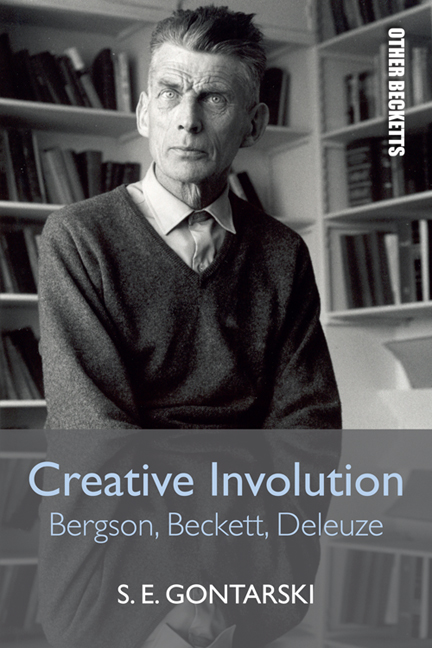Book contents
- Frontmatter
- Contents
- Dedication
- Other Becketts: Series Preface
- Abbreviations for Works
- Acknowledgements
- 1 ‘All the Dead Voices’: A Preface
- 2 ‘A Mixed Choir’ from The Ditch of Astonishment: An Introduction
- Anteriors
- Interiors
- 5 Towards a Creative Involution
- 6 ‘What it is to Have Been’: Movement, Multiplicity and Representation
- 7 Beyond the Shadow: Acts of Unceasing Creation
- 8 A Theatre of Deterritorialization and the Questions We Ask
- Posteriors
- Index
7 - Beyond the Shadow: Acts of Unceasing Creation
from Interiors
Published online by Cambridge University Press: 05 August 2016
- Frontmatter
- Contents
- Dedication
- Other Becketts: Series Preface
- Abbreviations for Works
- Acknowledgements
- 1 ‘All the Dead Voices’: A Preface
- 2 ‘A Mixed Choir’ from The Ditch of Astonishment: An Introduction
- Anteriors
- Interiors
- 5 Towards a Creative Involution
- 6 ‘What it is to Have Been’: Movement, Multiplicity and Representation
- 7 Beyond the Shadow: Acts of Unceasing Creation
- 8 A Theatre of Deterritorialization and the Questions We Ask
- Posteriors
- Index
Summary
Now, if some bold novelist, tearing aside the cleverly woven curtain of our conventional ego, shows us under this appearance of logic a fundamental absurdity, under this juxtaposition of simple states an infinite permeation of a thousand different impressions which have already ceased to exist the instant they are named, we commend him for having known us better than we know ourselves. This is not the case, however, and the very fact that he spreads out our feelings in a homogeneous time, and expresses its elements by words, shows that he in his turn is only offering us its shadow. (Bergson, Time and Free Will, 133–4)
Wearying soon of this he dropped his head on his arms in the midst of the chessmen, which scattered with a terrible noise. Mr Endon's finery persisted for a little in an after-image scarcely inferior to the original. Then this also faded and Murphy began to see nothing, that colourlessness which is such a rare postnatal treat, being the absence (to abuse a nice distinction) not of percipere but of percipi. (Murphy 246)
Would you let me add 5 or 6 pages to the last 9 [of Proust]? Or would that make it too long? I would like to develop the parallel with Dostoievski and separate Proust's intuitivism from Bergson's. (Beckett, letter to Charles Prentice, 14 October 1930)
In his 1966 study of Henri Bergson, which he calls Bergsonism, Gilles Deleuze focuses on intuition as the method in Bergson's overall philosophical project, a rethinking of metaphysics in terms of duration (durée), that is, time as opposed to space. ‘Intuition is neither a feeling, an inspiration, nor a disorderly sympathy, but a fully developed method’, notes Deleuze, ‘one of the most fully developed methods in philosophy. It has strict rules, constituting that which Bergson calls “precision” in philosophy’, and the method already assumes, and perhaps subsumes, duration (Deleuze 1988: 13). Elizabeth Grosz picks up the analysis in her essay ‘Bergson, Deleuze and Becoming’, where she notes:
Intuition is, for Bergson, a relatively rare but ever-productive force in the history of philosophy: it occurs only when old and familiar methods by which intelligence seeks to address the present and the new exhaust themselves and provide only generalizations rather than a concept uniquely suited to its object.
- Type
- Chapter
- Information
- Creative InvolutionBergson, Beckett, Deleuze, pp. 132 - 146Publisher: Edinburgh University PressPrint publication year: 2015

